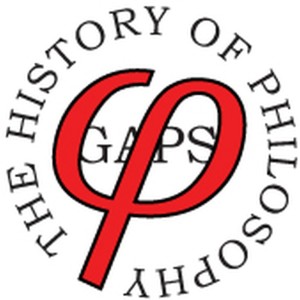Episodes

Sunday Jul 06, 2025
HoP 473 As Rational As You: Elisabeth of Bohemia
Sunday Jul 06, 2025
Sunday Jul 06, 2025
A royal scholar and philosopher sets aside the tribulations of her family to debate Descartes over the relation between mind and body and the nature of happiness.

Sunday Jun 22, 2025
HoP 472 Less Cheer, More Knowledge: Descartes’ Ethics
Sunday Jun 22, 2025
Sunday Jun 22, 2025
Descartes’ “provisional” morality and his views on free will and virtue.

Sunday Mar 30, 2025
HoP 466 Well Hidden: Descartes’ Life and Works
Sunday Mar 30, 2025
Sunday Mar 30, 2025
How René Descartes’ understanding of his own intellectual project evolved across his lifetime.

Sunday Feb 16, 2025
HoP 463 Doctors without Borders: the Republic of Letters
Sunday Feb 16, 2025
Sunday Feb 16, 2025
How scholars around Europe created an international network of intellectual exchange. As examples we consider the activities of Mersenne, Peiresc, Leibniz, Calvet, and Hartlib.

Sunday Oct 27, 2024
HoP 455 - Tom Pink on Francisco Suárez
Sunday Oct 27, 2024
Sunday Oct 27, 2024
We're joined by Tom Pink, who tells us about Suárez on ethics, law, religion, and the state.

Sunday Sep 01, 2024
HoP 451 - Could’ve, Would’ve, Should’ve - Free Will in the Second Scholastic
Sunday Sep 01, 2024
Sunday Sep 01, 2024
What was Luis de Molina trying to say about human free will with his doctrine of “middle knowledge,” and why did it provoke such controversy?

Sunday Mar 31, 2024
HoP 442 - Scott Williams on Disability and the New World
Sunday Mar 31, 2024
Sunday Mar 31, 2024
In this interview we learn about the main issues in modern-day philosophy of disability, and the relevance of this topic for the European encounter with the Americas.

Sunday Mar 17, 2024
HoP 441 - Lambs to the Slaughter - Debating the New World
Sunday Mar 17, 2024
Sunday Mar 17, 2024
Bartholomé De las Casas argues against opponents, like Sepúlveda, who believed that Europeans had a legal and moral right to rule over and exploit the indigenous peoples of the Americas.

Sunday Feb 18, 2024
HoP 439 - Cancel Culture - The Inquisition
Sunday Feb 18, 2024
Sunday Feb 18, 2024
How religious persecution and censorship shaped the context of philosophy in Catholic Europe in the sixteenth century.

Sunday Oct 15, 2023
HoP 430 - I’ll Teach You Differences - British Scholasticism
Sunday Oct 15, 2023
Sunday Oct 15, 2023
The evolution of Aristotelian philosophy from John Mair in the late 15th century to John Case in the late 16th century.

Sunday Jul 23, 2023
HoP 426 - A Face Without a Heart - Shakespeare’s Hamlet and Individualism
Sunday Jul 23, 2023
Sunday Jul 23, 2023
How the Renaissance turn towards individual identity is reflected in Shakespeare's most famous play.

Sunday Jul 09, 2023
HoP 425 - Patrick Gray on Shakespeare
Sunday Jul 09, 2023
Sunday Jul 09, 2023
We're joined by Patrick Gray to discuss Shakespeare's knowledge of philosophy, his ethics, and his influence on such thinkers as Hegel.

Sunday Jun 25, 2023
HoP 424 - Hast Any Philosophy In Thee? - William Shakespeare
Sunday Jun 25, 2023
Sunday Jun 25, 2023
How should we approach Shakespeare’s plays as philosophical texts? We take as examples skepticism and politics in Othello, King Lear, and Julius Caesar.

Sunday Jun 11, 2023
HoP 423 - Heaven-Bred Poesy - Philip Sidney and Edmund Spenser
Sunday Jun 11, 2023
Sunday Jun 11, 2023
We begin to look at Elizabethan literature, as Sidney argues that poetry is superior to philosophy, and philosophy is put to use in Spenser’s "Fairie Queene".

Sunday Jan 15, 2023
HoP 412 - Not Matter, But Me - Michel de Montaigne
Sunday Jan 15, 2023
Sunday Jan 15, 2023
In his “Essays” Montaigne uses his wit, insight, and humanist training to tackle his favorite subject: Montaigne.

Sunday Nov 06, 2022
HoP 407 - Maria Rosa Antognazza on Early Modern Toleration
Sunday Nov 06, 2022
Sunday Nov 06, 2022
An interview on the nature of religious tolerance, and the forms it took during the Reformation and in the thought of early modern thinkers like Locke and Leibniz.

Sunday Oct 23, 2022
HoP 406 - Believe at Your Own Risk - Toleration in France
Sunday Oct 23, 2022
Sunday Oct 23, 2022
Even as wars of religion in France prompt calls for toleration, hardly anyone makes a principled case for freedom of conscience… apart from Sebastian Castellio.

Sunday Jun 05, 2022
HoP 398 - Pearls of Wisdom - Marguerite of Navarre
Sunday Jun 05, 2022
Sunday Jun 05, 2022
A Renaissance queen supports philosophical humanism and produces literary works on spirituality, love, and the soul.

Saturday Mar 12, 2022
HoP 392 - John Sellars on Lipsius and Early Modern Stoicism
Saturday Mar 12, 2022
Saturday Mar 12, 2022
John Sellars returns to the podcast to discuss Lipsius' work on Seneca and the early modern Neo-Stoic movement.

Sunday Feb 13, 2022
HoP 390 - Born to Be Contrary - Toleration in the Netherlands
Sunday Feb 13, 2022
Sunday Feb 13, 2022
Amidst religious conflict in the Netherlands, Dirck Coornhert pleads for religious toleration and freedom of expression.

